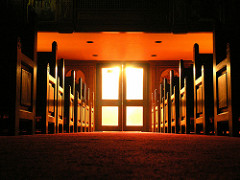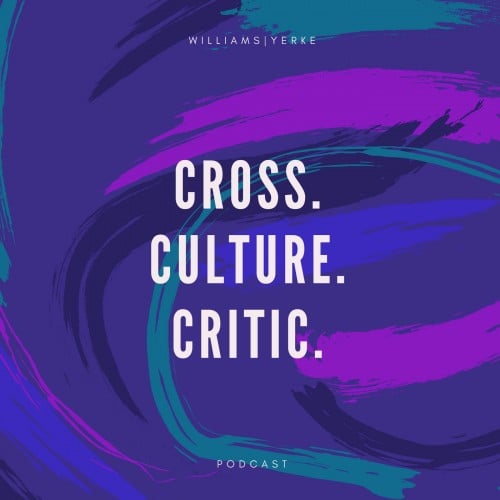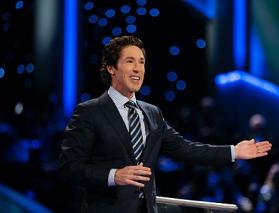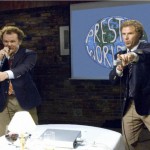I know you come to this site looking for movie news and reviews. And 90% of the time, that’s what I want to give you. But I believe our thoughts on film and entertainment are shaped by our culture, and a good student of film will have other interests. We’re at a crucial time in our nation right now; a time that is scaring me. And I couldn’t leave these thoughts bottled up inside.
I had a thought last night and it hasn’t left me. Before I post it, let me say that I know it’s not indicative of all churches (and I’m thankful the church we attend now is not like this). But I do believe it’s a sad clue to how American Christianity and evangelicalism have gotten to the point we’re at today. So here we go.
I’ve been in church all my life. I was 25 years old before I ever heard a pastor preach in depth on what it meant to love our enemies, and who spent several weeks reminding us that the point of 1 Cor. 13 was not about romantic love but about the fact that love had to underscore every interaction Christians have. I was in church two and a half decades before I heard that message.
However, I only had to be 15 to be sitting in a Sunday morning worship service that erupted in screaming and yelling because one of the elders commandeered the pulpit to vent his anger at the pastor (over allegations I don’t remember much of but do remember being absurd). I remember it getting so bad that I overheard my dad confessing to my mom later that he was praying God would strike the man dead if that’s what it took to end that embarrassing moment. This wasn’t at a business meeting or fellowship dinner; this was in the middle of Sunday morning worship. The arguing spilled out into the lobby after the service, and I still remember nasty letters family friends received. This was just a few years after similar in-fighting at the same church had caused the previous pastor to commit suicide.
I think that toxic atmosphere is why only one or two of the people from my youth group still have any connection to the faith, and why my own attitude toward church was so soaked in cynicism for many years; I still wrestle with it. I grew up thinking this was an isolated incident; that somehow we just attended a church that had some curse woven into it. As I got older and talked to others who came out of the same culture, I heard similar stories about church fights, destroyed relationships over petty theological and political disagreements, and faith shipwrecked by shepherds who were more concerned with being right and building numbers than nurturing their flocks’ souls.
I have often been amazed that I still have any faith. That church experience should have destroyed it. But God blessed me with another, quieter memory of that day. As the elder and his minions were screaming and frothing at the mouth, making a mockery of our most sacred day of the week, I saw a few women quietly get up, walk to the front pews and kneel down. They prayed until the situation quieted down. Somehow, that memory sticks with me. And I’m thankful for it.
It reminded me that our faith is a battle. That Christianity doesn’t need to be cleaning up the world; it needs to be cleaning up itself. If people aren’t finding the gospel attractive, many times it’s because the church has a reputation for looking ugly. And much of this spills out of an unbiblical but very American theology of being right, winning, and defeating anyone who doesn’t share our views. There’s not much room for love in that conversation.
It’s this seed of needing to be right, needing to be the majority, needing to be on top that destroys our church. It shipwrecks faith. And it leads to a culture where liberal Christians focus on good things like social justice, charity and the environment at the expense of doctrine because they associate doctrine with division. It creates a culture where conservative bloggers like Matt Walsh are known for their rage and bile, and leaders like Jerry Falwell Jr. make outrageous and hateful remarks about Muslims. It leads to a culture in which people are surprised by how many evangelical voters support a vile man like Donald Trump; but the seeds have been sown for a long time.
Here’s the thing, though. I think the majority of true followers of Christ — people who aren’t evangelical in name only — are just as appalled at Donald Trump as the rest of America. I think the majority of them do believe in a gospel of love. They’re being drowned out by a minority with a deafening voice in the middle of a culture rage-filled culture. It’s now that they need to get up, walk to the front pew and quietly pray. They need to show that in all this ugliness, true faith is a thing of beauty.
I think we’re at a painful but necessary point in American Christianity. We’re seeing the effect of marrying our beliefs so closely to political parties. We’re seeing the effect of letting American culture infiltrate our churches instead of letting the gospel be the salt that seasons our nation. We’re seeing the effects of a perverted gospel preaching prosperity, personal victory and political power instead of recognizing that the church has always functioned best as a minority, serving a broken culture through love and kindness, attracting with love and backing it up with a reason to hope.
This will get worse before it gets better. It’s going to cause us to re-examine so many of our beliefs and motives, to set aside our differences in our congregations and int he world, and to swallow our pride. Right now, the situation in our country looks grim, and Christianity looks to be adding to the problem. But I believe in the men and women who will quietly pray, love with revolutionary love, and cling to a gospel that relinquishes our “right” to be right and is spread through beauty and service.













